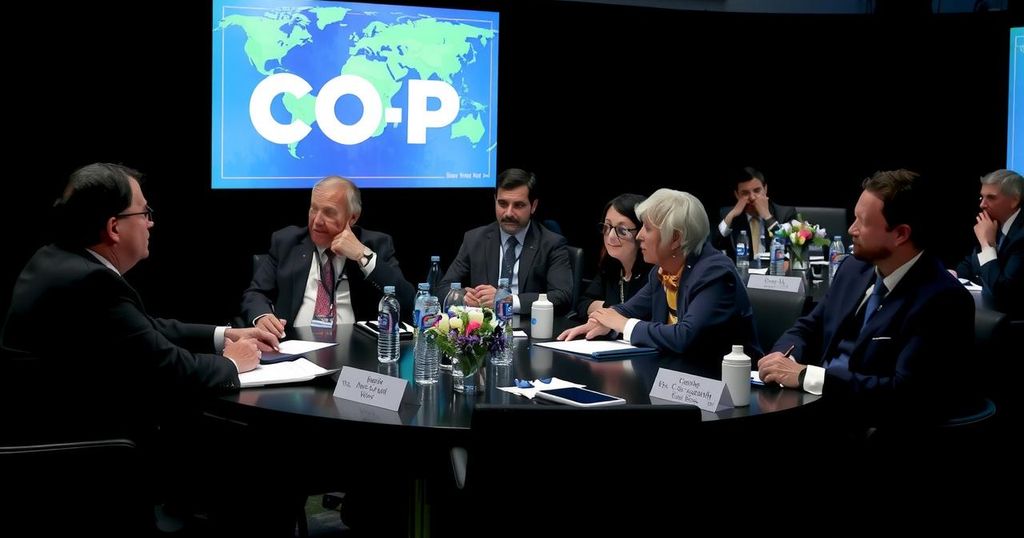U.S. Climate Team at COP29 Upholds Commitment Amid Transition Challenges

The U.S. climate team at COP29 remains active in negotiations despite impending political changes. Led by John Podesta, they commit to addressing climate financing and strategies for developing nations. While a potential shift in U.S. policy raises concerns, the team emphasizes their dedication to effective participation and leadership at the conference.
At the COP29 climate summit in Baku, the outgoing U.S. climate team, led by envoy John Podesta, remains committed to both demonstrating international cooperation and addressing climate change despite the impending transition to a new administration under Donald Trump. During their engagements, the U.S. officials reiterated that the efforts to mitigate climate impacts would persist, even amidst uncertainty about future U.S. policies. They are actively involved in negotiations aimed at substantially increasing financial support for developing nations as they transition to sustainable energy solutions. Podesta’s attendance serves as a reminder of the ongoing commitment of the Biden administration to climate policies, as he engages in discussions and meetings throughout the conference. Notably, he co-hosted a summit focused on methane emissions, announcing new fees on methane emitted by U.S. oil and gas companies. Despite concerns surrounding Trump’s potential rollback of climate initiatives, advisers emphasize the resilience demonstrated during Trump’s previous term, wherein essential climate finance mechanisms prevailed. Ali Zaidi, a top climate adviser, expressed optimism, suggesting that although administrations may vary in climate policy focus, previous commitments persist. Additionally, he noted, “We’ve seen not just the US, but other countries zig and zag over the course of… COPS.” Negotiations are underway to significantly enhance climate financing, with some countries advocating for a tenfold increase to $1 trillion annually. The objective is to boost financial resources available to poorer nations grappling with climate adaptation and energy transition issues. As discussions continue, the urgency for collective global action remains pressing, with many countries pressing the U.S. not to evade responsibility in light of the electoral context. Germany’s climate negotiator, Jennifer Morgan, highlighted the growing consensus to propel commitments forward and realize ambitious climate finance outcomes despite potential political hurdles. Overall, as the summit progresses, the U.S. aims to maintain its active role, despite the looming uncertainties associated with shifting political leadership. The clear message from the Biden administration’s representatives is that their participation at COP29 will be proactive and geared towards achieving substantive outcomes in the face of future challenges posed by the recalibrated U.S. political climate.
As the global community gathers for COP29 in Baku, the U.S. climate team braces for changes due to the forthcoming Trump administration, which is expected to implement a more skeptical approach toward climate initiatives. Previously, during Trump’s administration, significant strides were made in climate finance, albeit with challenges. Current discussions at this conference focus on enhancing financial support for nations affected by climate change, while also addressing the need for ambitious environmental policies that can withstand political fluctuations.
In conclusion, the outgoing U.S. climate team at COP29 emphasizes their commitment to international climate initiatives and financial support for developing nations. Despite the uncertainties with the impending Trump administration, discussions highlight the continuation of U.S. efforts in climate governance. The conference serves as a crucial platform for fostering international collaboration, ensuring that the momentum toward ambitious climate goals persists.
Original Source: www.rfi.fr







